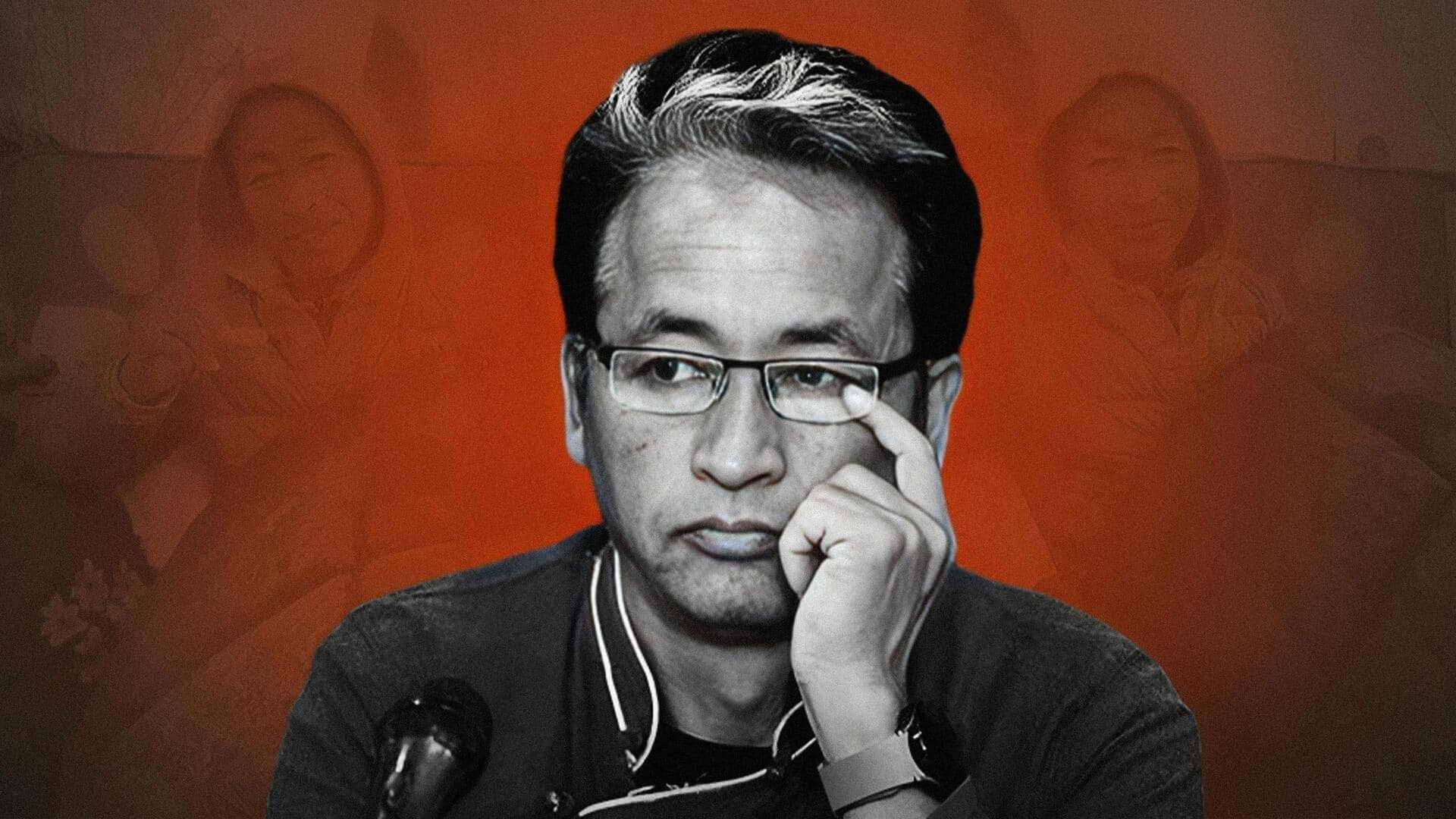
Why climate activist Sonam Wangchuk is on 'fast unto death'
What's the story
Climate activist Sonam Wangchuk is on a fast unto death in freezing temperatures in Leh, Ladakh. Wangchuk's protest is aimed at achieving four key demands, including statehood for Ladakh and the implementation of the Sixth Schedule of the Constitution in the region. The strike, which began in Leh on March 6, has entered its 15th day as of Wednesday. Here's what we know about the protest so far.
Context
Why does this story matter?
According to Wangchuk, the central government had included the protection of Ladakh under the Sixth Schedule in their manifestos for the 2019 Lok Sabha elections and the 2020 Ladakh Hill Council polls. However, after numerous meetings, the government reneged on its pledges. The protest is being held "to remind the Indian Government of their promises to safeguard Ladakh's environment and its tribal indigenous culture."
21 day protest
The importance of 21 days and the Sixth Schedule
The protest is being organized in phases of 21 days each, a period that, according to Wangchuk, is inspired by Mahatma Gandhi's longest fast during India's fight for independence. Through the protest, he aims to draw policymakers' attention to their plight and stimulate action. For this, Wangchuk has identified two main objectives: encouraging individuals to adopt simpler lifestyles and pressing the government to uphold its pledge to incorporate Ladakh into the Sixth Schedule of the Constitution.
Sixth Schedule
Sixth Schedule only applicable to certain northeastern states
At present, the Sixth Schedule provision is only applicable to certain northeastern states. The Sixth Schedule of Article 244 of the Indian Constitution establishes autonomous administrative territories known as Autonomous District Councils (ADCs). The ADCs have autonomy in legislative, judicial, and administrative matters within a state. They can have up to 30 members—each serving a five-year term—and can pass laws, rules, and regulations governing land, forest, water, agriculture, village councils, health, sanitation, village and town policing, and other issues.
Failed talks
Protest comes after failed talks between Ladakhi leadership and Centre
The protest also coincides with the failed talks between the joint representatives of the Centre and the Kargil Democratic Alliance (KDA) over the four-point demands. On Wednesday, the KDA called for a half-day countrywide strike in solidarity with Wangchuk. To recall, following the abrogation of Article 370 in August 2019, and the subsequent implementation of the Jammu and Kashmir Reorganisation Act, 2019, Ladakh was recognized as a separate Union Territory "without legislature."
Twitter Post
I'm still fine surviving on just water and salt: Wangchuk
BEGINNING OF DAY 15 OF #CLIMATEFAST
— Sonam Wangchuk (@Wangchuk66) March 20, 2024
I'm still fine surviving on just water & salts.
Along with me 125 people slept hungry outdoors under clear skies. Temperature: - 11 °C
Let's understand that saving Ladakh's glaciers is not just a concern for people of Ladakh alone. Find out… pic.twitter.com/tXPqS6ro4w
KDA
Goal to make Ladakhi people's voices heard: Wangchuk
While the cause of the government's U-turn is unknown, Wangchuk stated that his goal was to make Ladakhi people's voices heard. The activist also raised environmental worries about the Himalayas, claiming that industries had exploited the mountains by building dams and mining. "People are asking whether declaring Ladakh a Union Territory was a ploy to sell off our mountains to industrial lobby and mining companies," Wangchuk told NDTV.
Upcoming elections
What will happen to Ladakh? Wangchuk answers
He further said that Jammu and Kashmir would likely get full democracy after assembly elections, but Ladakh will be left under the rule of a bureaucracy controlled by New Delhi. Judging from the prevailing sentiment, the region, which has one Lok Sabha member, might potentially see a boycott of the general elections. The decision will be a no-brainer for the region's populace, which sees the Bharatiya Janata Party government's backtracking on promises made to Ladakh as "betrayal."